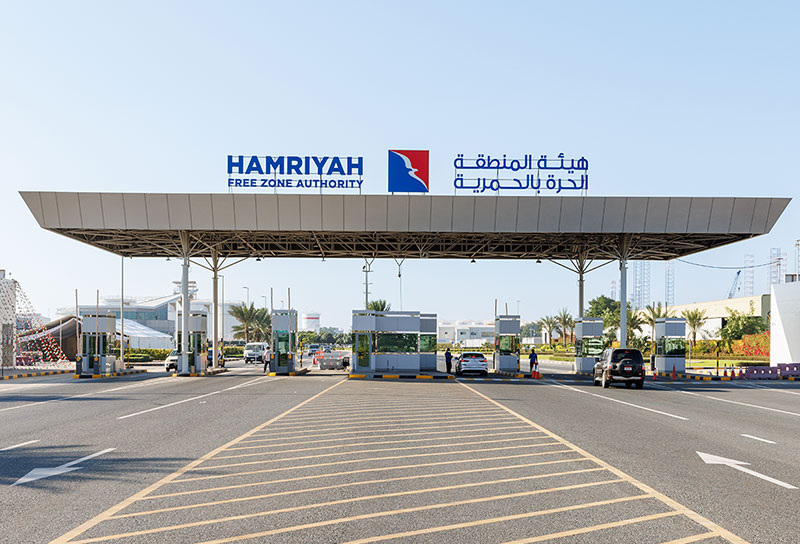If you are considering liquidating your company in Dubai, you are likely facing a challenging and stressful situation. Company liquidation is a complicated process that requires careful planning and execution to be successful. In Dubai, company liquidation is governed by the UAE Commercial Companies Law and must be carried out by the regulations set forth by the Dubai Department of Economic Development (DED). Our team of professionals is well-versed in the laws and regulations surrounding company liquidation in Dubai, ensuring a smooth and efficient closure for your business.
- What is Company Liquidation in Dubai?
- Types of Company Liquidation in Dubai, UAE
- How Does Company Liquidation in Dubai Work?
- Steps to Company Liquidation in Dubai
- Legal Requirements for Company Liquidation in Dubai
- Types of Jurisdictions: Company Liquidation in Dubai, UAE
- Documentation required for company liquidation in Dubai
- Why Choose Us for Company Liquidation in Dubai?
- How We Can Help You with Company Liquidation in Dubai
What is Company Liquidation in Dubai?
Company liquidation in Dubai can be initiated voluntarily by the company’s shareholders or creditors, or it can be ordered by the courts in cases of insolvency. The process typically involves appointing a liquidator who is responsible for selling off the company’s assets, paying off its debts, and distributing any remaining funds to the shareholders.
Types of Company Liquidation in Dubai, UAE
Are you considering liquidating your company in Dubai? There are several types of company liquidation options available in this thriving business hub. Each type has its own set of procedures and requirements that need to be followed.
1. Members Voluntary Liquidation (MVL)
This type of company liquidation is ideal for solvent companies that wish to wind up their operations voluntarily. In a Members’ Voluntary Liquidation (MVL), the company’s shareholders pass a resolution to liquidate the company and appoint a liquidator to oversee the process. The company must be able to pay off all its debts within 12 months of starting the liquidation process. Once the liquidation is complete, the company is dissolved, and any remaining assets are distributed among the shareholders.
2. Creditors Voluntary Liquidation (CVL)
If a company in Dubai is insolvent and unable to pay off its debts, it may opt for a Creditors’ Voluntary Liquidation (CVL). In this type of liquidation, the company’s directors must call a meeting with the creditors to appoint a liquidator. The liquidator takes control of the company’s assets, sells them off, and distributes the proceeds to the creditors according to their priority. Once the liquidation is complete, the company is dissolved, and its operations come to an end.
3. Compulsory Liquidation
Compulsory liquidation is a court-driven process that occurs when a company is unable to pay its debts, and a creditor petitions the court to liquidate the company. The court appoints a liquidator to sell off the company’s assets and distribute the proceeds to the creditors. Compulsory liquidation is usually the last resort for creditors seeking to recover their debts from a company that is unable to pay.
How Does Company Liquidation in Dubai Work?
The process of company liquidation in Dubai involves several steps that must be followed in order to comply with the legal requirements. Here is a general overview of the steps involved in company liquidation in Dubai:
- Board Resolution: The first step in the liquidation process is to obtain a board resolution approving the decision to wind up the company. This resolution must be signed by the majority of the company’s directors.
- Appointment of a Liquidator: A liquidator must be appointed to oversee the liquidation process. The liquidator can be an individual or a company specializing in liquidation services.
- Notification to Creditors and Authorities: Once the decision to liquidate has been made, the company must notify its creditors and the relevant authorities of its intention to wind up the business.
- Settlement of Debts: The company must settle all its outstanding debts, including any payments owed to creditors, employees, and other stakeholders.
- Sale of Assets: The company’s assets must be sold off in order to generate funds to repay its debts. This process must be conducted transparently and fairly.
- Cancellation of Licenses and Permits: The company’s trade license and permits must be cancelled with the relevant authorities to officially close down the business.
- Distribution of Assets: Once all debts have been settled, any remaining assets can be distributed among the shareholders of the company.
Steps to Company Liquidation in Dubai
If you have decided to liquidate your company in Dubai, here are the steps you will need to follow:
- Board Resolution: The first step is to convene a board meeting and pass a resolution to approve the liquidation.
- Appointment of Liquidator: Next, you will need to appoint a liquidator who will oversee the liquidation process and ensure that all legal requirements are met.
- Notification to Creditors: You must notify your creditors of the company’s decision to liquidate and provide them with an opportunity to file their claims.
- Settlement of Debts: The company will need to settle its debts, including outstanding payments to creditors, employees, and other stakeholders.
- Asset Liquidation: The liquidator will then sell off the company’s assets and use the proceeds to pay off creditors and shareholders.
- Cancellation of License: Finally, the company’s trade license will need to be canceled with the relevant authorities.
Legal Requirements for Company Liquidation in Dubai
When liquidating a company in Dubai, it is important to ensure that all legal requirements are met. This includes:
- Compliance with Company Law: The liquidation process must comply with the provisions of the UAE Companies Law and any other relevant regulations.
- Notification to Authorities: The relevant authorities, such as the Department of Economic Development and the Commercial Register, must be notified of the company’s liquidation.
- Settlement of Taxes: All outstanding taxes must be settled before the company can be officially liquidated.
Types of Jurisdictions: Company Liquidation in Dubai, UAE
Understanding the different types of jurisdictions for company liquidation in Dubai is important for business owners looking to wind up their operations in this bustling city.
1. Mainland Company Liquidation
One of the most common types of jurisdictions for company liquidation in Dubai is mainland company liquidation. Mainland companies are governed by the UAE Commercial Companies Law, making the liquidation process straightforward but time-consuming. Business owners must follow specific steps outlined by the Department of Economic Development (DED) to liquidate their mainland company successfully.
2. Free Zone Company Liquidation
For companies operating within Dubai’s numerous free zones, the liquidation process is regulated by the respective free zone authority. Each free zone has its own set of rules and regulations governing free zone company liquidation, so business owners must understand the requirements and procedures specific to their free zone. Free zone company liquidation typically involves canceling visas, closing bank accounts, and obtaining clearance certificates.
3. Offshore Company Liquidation
Offshore companies in Dubai are popular among international businesses seeking to establish a presence in the region without a physical office. When it comes to offshore company liquidation, the process is relatively straightforward, as offshore companies are not subject to UAE laws and regulations governing mainland and free zone entities. Business owners looking to liquidate their offshore company in Dubai must follow the guidelines set forth by the respective offshore jurisdiction.
4. Dubai International Financial Centre (DIFC) Company Liquidation
Companies operating within the DIFC, a financial free zone in Dubai, fall under a separate legal jurisdiction governed by its laws and regulations. DIFC company liquidation is overseen by the DIFC Authority, and business owners must adhere to the DIFC Insolvency Law when winding up their operations. The liquidation process in the DIFC involves appointing insolvency practitioners, liquidators, and notifying creditors.
Documentation required for company liquidation in Dubai
There are various reasons why a business may need to liquidate, such as financial difficulties, changes in business direction, or regulatory requirements. Regardless of the reason, proper documentation is required for a successful company liquidation process.
- Trade License: The original trade license of the company is required for company liquidation in Dubai. This document proves the legality of the business entity and must be submitted to the relevant authorities during the liquidation process.
- Memorandum of Association (MOA) and Articles of Association (AOA): These documents outline the company’s structure, shareholder details, and business activities. They are essential for proving the company’s existence and must be submitted during liquidation.
- Financial Statements: Audited financial statements for the past financial years are necessary for the company liquidation in Dubai. These statements provide an overview of the company’s financial health and must be prepared in compliance with the UAE laws and regulations.
- Board Resolution: A board resolution approving the company’s liquidation and appointing a liquidator is required. This document must be signed by all company directors and submitted to the relevant authorities.
- Liquidation Report: A detailed report outlining the company’s assets, liabilities, and proposed distribution of assets must be prepared. This report is crucial for the liquidation process and must be submitted to the authorities.
- Clearance Certificates: Clearance certificates from relevant government authorities, such as the Dubai Economic Department, Dubai Chamber of Commerce, and Ministry of Human Resources and Emiratisation, are required for company liquidation. These certificates ensure that the company has no outstanding liabilities.
- Visa Cancellation Certificates: If the company had sponsored any employees, visa cancellation certificates are necessary for company liquidation. These certificates prove that all sponsored employees have had their visas canceled.
- Power of Attorney: A power of attorney authorizing the liquidator to act on behalf of the company during the liquidation process is crucial. This document must be notarized and submitted to the relevant authorities.
Why Choose Us for Company Liquidation in Dubai?
- Experience: With years of experience in company liquidation services in Dubai, we have a deep understanding of the local laws and regulations governing this process.
- Expertise: Our team of experts is well-versed in all aspects of company liquidation and can provide sound advice and guidance throughout the process.
- Authority: We are recognized as a reputable and trustworthy company in Dubai, known for our professionalism and dedication to ensuring our clients’ needs are met.
- Trust: Our clients trust us to handle their company liquidation process with care and efficiency, giving them peace of mind during what can be a stressful time.
How We Can Help You with Company Liquidation in Dubai
- Initial Assessment: We will conduct a thorough assessment of your company’s financial situation and legal obligations to determine the best course of action for liquidation.
- Documentation Preparation: Our team will handle all the necessary paperwork and documentation required for the liquidation process, ensuring all legal requirements are met.
- Communication with Authorities: We will liaise with the relevant government authorities and regulatory bodies on your behalf, saving you time and effort.
- Asset Distribution: We will assist in the fair distribution of assets to creditors and shareholders according to the law, ensuring a smooth and transparent process.
In conclusion, company liquidation in Dubai is an important decision that requires careful consideration and expert guidance. With our experience, expertise, authority, and trust, we can help you navigate the liquidation process with ease. Trust us to handle your company’s liquidation in Dubai, and rest assured that your business affairs will be in good hands.




